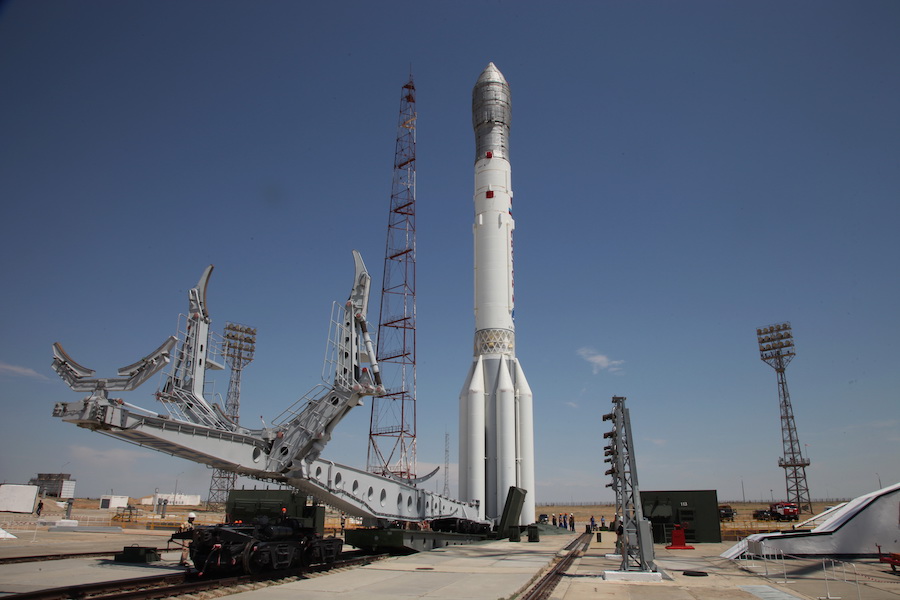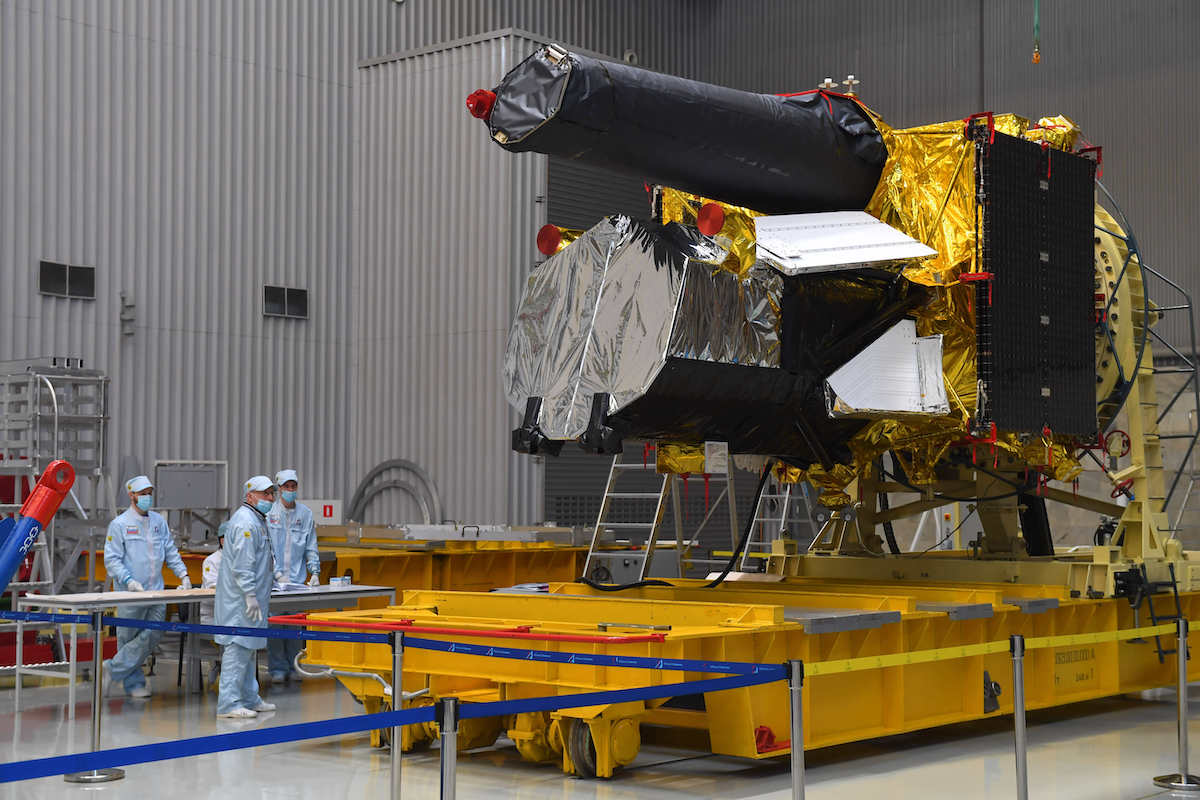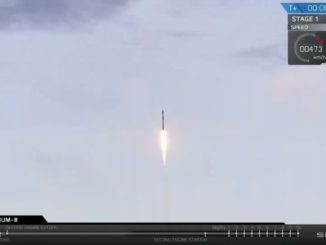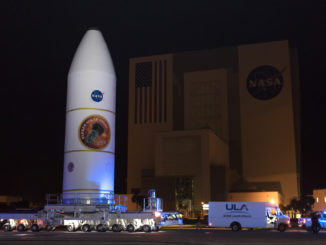
Russian officials have delayed until Saturday the launch of a Proton rocket from Kazakhstan with the Spektr-RG X-ray astronomy observatory, an ambitious mission jointly developed with Germany to probe dark energy.
The Russian State Commission overseeing final launch preparations at the Baikonur Cosmodrome decided early Friday to delay the launch until Saturday.
In a statement Friday, the Russian space agency said officials ordered the delay due to need to obtain “experimental confirmation” from Khrunichev, the Proton rocket’s manufacturer in Moscow, of a proposed solution to resolve a technical problem on one of the systems of the launcher.
The Russian space agency — Roscosmos — previously announced Thursday that engineers were examining a technical concern with the Proton rocket, and added that managers planned to decide early Friday whether to proceed with a launch attempt.
The Russian State Commission is scheduled to meet again early Saturday to review the technical problem before approving teams to begin fueling the Proton launcher.
If the launch attempt goes forward, liftoff Saturday is set for 1231 GMT (8:31 a.m. EDT; 5:31 p.m. Baikonur time).
The mission to launch the Spektr-RG X-ray observatory was supposed to lift off June 21, but officials had to return the rocket to an assembly building at Baikonur to replace a battery. The Proton rocket returned to its launch pad Tuesday on Complex 81 at Baikonur.

The Proton rocket and its Block DM upper stage will send the Spektr-RG spacecraft toward an observation post in orbit around the L2 Lagrange point nearly a million miles (1.5 million kilometers) from the night side of the Earth. The L2 location is a gravitational balance point between the Earth and the sun, and is a popular location for space astronomy missions.
Spektr-RG carries Russian and German X-ray telescopes to scan the entire sky. One focus of the mission is the study of massive clusters of galaxies, the largest structures in the known universe, which hold clues about dark energy.
Dark energy is the mysterious force driving the accelerating expansion of the universe.
Email the author.
Follow Stephen Clark on Twitter: @StephenClark1.



